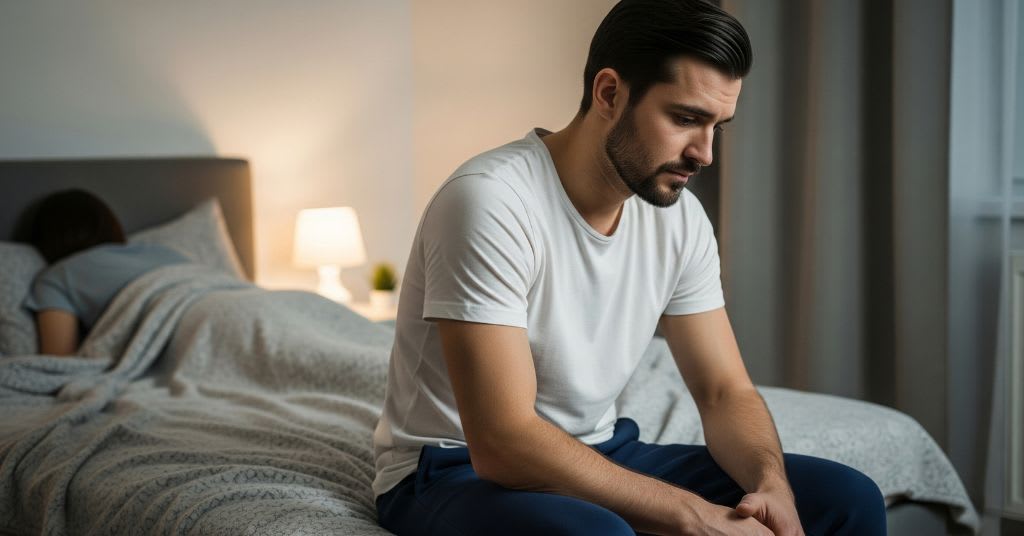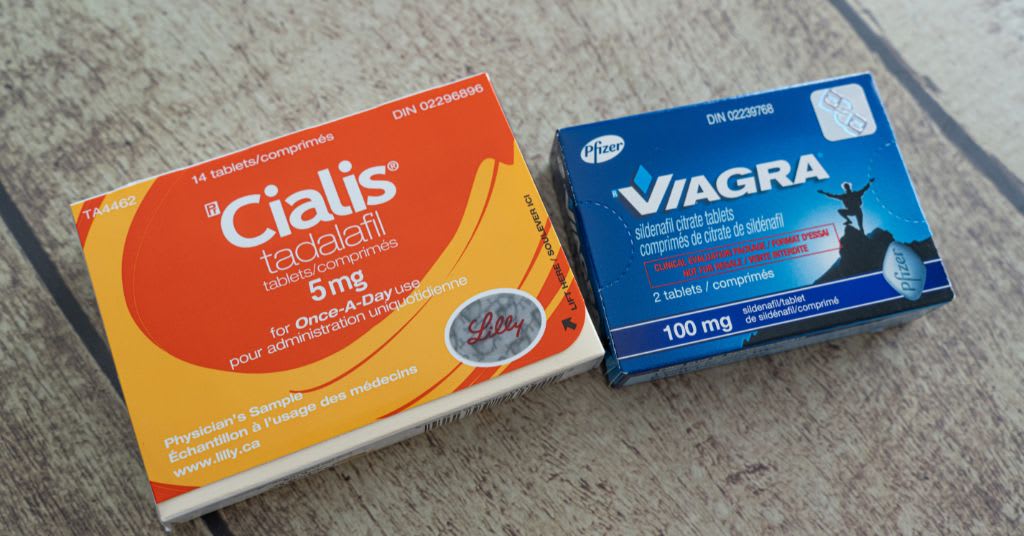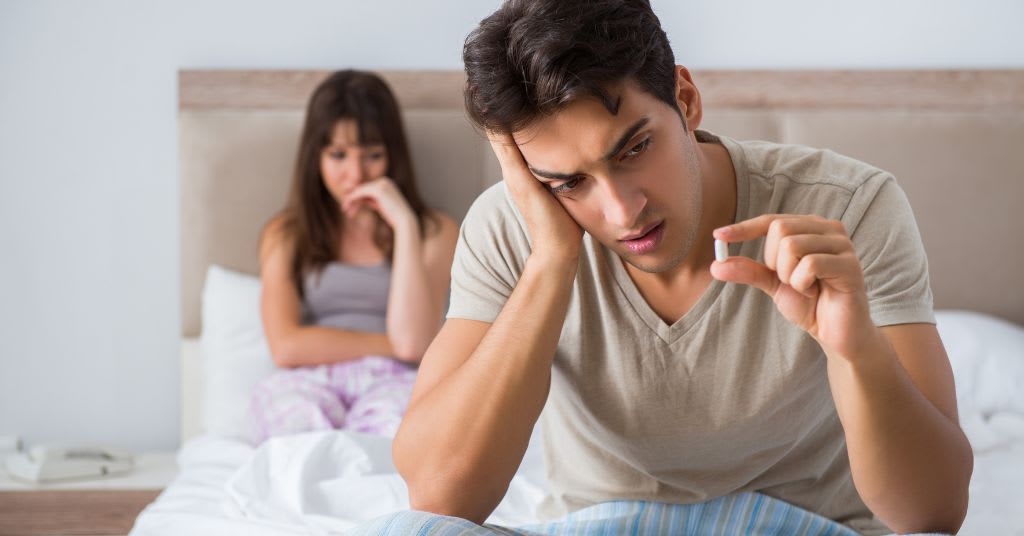Erectile dysfunction (ED) is often thought of as a problem linked to aging, physical illness, or poor lifestyle habits. While these are common contributors, there’s another side to the story that doesn’t always get enough attention.
Anxiety and high stress can have a strong effect on sexual performance, sometimes leading to ED. In fact, psychological causes of ED are often just as important as physical ones, and for many men, even more pressing. This is why conversations about stress and ED deserve more attention than they often get.
This article breaks down what we know about the connection between stress, anxiety, and erectile dysfunction. We’ll look at why it happens, how often it shows up in men with anxiety disorders, and what can be done to manage it.
What Is Erectile Dysfunction?
Erectile dysfunction is when a man struggles to either get an erection or keep one long enough for sex. Most men experience this occasionally. Being tired, stressed, or having a few too many drinks can all cause temporary problems. But if it happens often, it can signal something more persistent, like a physical health issue such as diabetes, high blood pressure, or cholesterol, or a psychological one, such as anxiety or depression. 1
What makes ED especially complex is that it’s rarely about one single cause. For many men, physical and mental factors mix together. This is why anxiety and erectile dysfunction is such a common issue: the mental strain adds another layer to physical changes that may already be happening in the body. 2
Anxiety and Erectile Dysfunction: What the Research Says
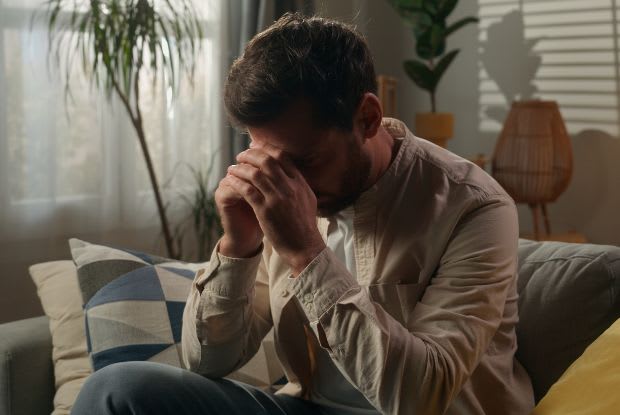
A 2021 review pulled together results from 12 studies that looked directly at anxiety and erectile dysfunction. These included conditions like panic disorder, obsessive–compulsive disorder, social anxiety, and post-traumatic stress disorder (PTSD).
The results showed a wide range: the prevalence of ED in these groups varied from as low as 2% to as high as 85%, with the median around 20%. In men with PTSD, the rates were particularly high, often well above average. 1
The severity of ED also tended to be worse in men with anxiety. On a standard measure of erectile function (the IIEF-5 scale), average scores placed them in the mild to moderate category. That means even when erections were possible, they often weren’t firm or long-lasting enough to allow for intercourse. 2
This makes it clear that stress and ED aren’t just loosely connected; they overlap in a way that can significantly impact quality of life. In fact, stress and ED often create a cycle: performance problems cause anxiety, and the anxiety makes the performance issues worse. Left unchecked, this loop can drag down self-esteem, relationships, and mental health.
Why Anxiety Leads to ED
The body’s stress response is designed for survival, not intimacy. When you feel anxious, your nervous system flips into “fight-or-flight” mode. Heart rate goes up, blood pressure rises, muscles tense, and blood flow is redirected away from non-essential functions like digestion and, yes, sexual performance. 2
Here’s how that affects erections:
- Distraction from arousal: Anxiety makes it harder to focus on intimacy. Thoughts race, and the brain is too busy worrying to stay in the moment.
- Excess sympathetic tone: Anxiety increases adrenaline, which tightens blood vessels and makes it harder for the penis to fill with blood.
- Fear of failure: After one or two experiences of not getting or keeping an erection, men may start to expect failure. That anticipation alone can be enough to cause it. 2
These mechanisms explain why psychological causes of ED are so strong. Even men without a diagnosed anxiety disorder can experience stress and ED when life gets overwhelming. In this way, psychological causes of ED play a central role in many cases, regardless of whether a man is otherwise physically healthy.
The Vicious Cycle of Stress and ED
One of the biggest problems with anxiety and erectile dysfunction is that it rarely happens just once. After an initial episode, many men start to anticipate future problems. This creates a cycle:
- Stress or anxiety interferes with performance.
- The failed attempt fuels more anxiety about the next time.
- That extra anxiety makes the problem worse.
- Over time, the cycle becomes harder to break. 2
Researchers describe this as a feedback loop, where sexual performance problems and anxiety feed each other. In relationships, this cycle can create tension and miscommunication, adding more pressure. For some men, stress and ED become not only a personal issue but also a relationship challenge. 2
How Common Are Psychological Causes of ED?
ED is often caused by physical health conditions, but mental health problems such as depression and anxiety are also frequent triggers. The systematic review backs this up, showing that in men with anxiety disorders, ED is both more common and more severe than in the general population. 2
This means that psychological causes of ED are far from rare; they’re widespread but often underdiagnosed. One reason is that men may feel embarrassed talking about either their mental health or their sexual performance.
As a result, they don’t always seek help, even though effective treatment is available. When ignored, stress and ED can spiral into something much larger than a bedroom problem.
Other Risk Factors That Link Stress, Anxiety, and ED
There are several risk factors that make ED more likely in men with anxiety:
- Medication side effects: Certain antidepressants and other psychiatric drugs are well known to cause sexual dysfunction.
- Alcohol use: Some men use alcohol to ease anxiety, but heavy drinking also contributes to ED.
- Comorbid conditions: Anxiety often overlaps with depression, and depression itself raises the risk of ED. 2
This means that anxiety and erectile dysfunction aren’t just about nerves in the moment. It’s influenced by treatment choices, coping mechanisms, and overall mental health.
How to Break the Stress and ED Cycle
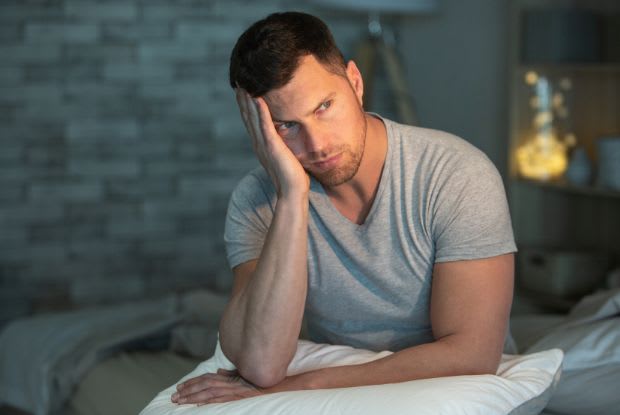
The good news is that there are multiple ways to break the cycle of stress and ED. For some men, that means therapy and medication together. For others, lifestyle changes and stress reduction techniques are enough to see improvements.
Lifestyle Steps
- Exercise regularly: Physical activity reduces stress, improves blood flow, and supports better erections.
- Cut back on alcohol and smoking: Both can worsen ED directly.
- Work on stress management: Mindfulness, breathing exercises, or therapy can all lower everyday stress.
- Address sleep and fatigue: Being well rested improves both mood and sexual function. 1
You can also support your treatment plan naturally by choosing foods that improve circulation and reduce inflammation. See our full list of foods that improve erectile dysfunction to learn more about using diet as part of your ED recovery strategy.
Medical and Psychological Support
- Therapy: Counseling or sex therapy can help men work through performance anxiety, trauma, or relationship issues.
- Medication: Drugs like sildenafil (Viagra) and tadalafil (Cialis) improve blood flow and can ease the pressure men feel about performance. These medications can be accessed through MailMyMeds, which makes the process more private and convenient.
- Addressing mental health directly: For men with diagnosed anxiety disorders, treating the anxiety itself is often the most effective way to also improve erections. 1
The important thing is that men shouldn’t ignore the issue. Persistent ED can point to both physical and mental health problems that need attention.
The Bigger Picture: Anxiety, Stress, and Quality of Life
Beyond the bedroom, ED linked to anxiety can chip away at confidence and overall well-being. Studies show that men with ED often report lower self-esteem, more relationship strain, and reduced quality of life. These effects can ripple outward, contributing to depression, withdrawal, or even further health problems. That’s why looking at psychological causes of ED matters so much. Tackling stress and ED is part of a much bigger effort to improve men’s health overall. 2
When to Seek Help
It’s worth seeing a doctor or a sexual health clinic if erection problems keep happening. A doctor can check for physical conditions, review medications, and suggest counseling or therapy if mental health factors are playing a role. The sooner help is sought, the easier it is to stop the cycle of stress and ED before it becomes ingrained.
Conclusion
Erectile dysfunction is often framed as a blood flow issue, but anxiety and stress can be just as powerful in triggering it. For many men, the real struggle is psychological.
Anxiety leading to erectile dysfunction is common, and stress and ED often form a self-reinforcing cycle that makes sexual performance harder over time. Recognizing psychological causes of ED is the first step toward addressing them.
Treatment doesn’t always mean medication, although that can help. Often, the solution involves a mix of lifestyle changes, stress reduction, therapy, and support for underlying mental health conditions.
The research is clear: men with anxiety disorders face a higher risk, but with proper attention, the cycle can be broken. For more information about ED and practical tips, visit our ED blog page.
The content in this article is intended for informational purposes only. This website does not provide medical advice. In all circumstances, you should always seek the advice of your physician and/or other qualified health professionals(s) for drug, medical conditions, or treatment advice. The content provided on this website is not a substitute for professional medical advice, diagnosis, or treatment.
